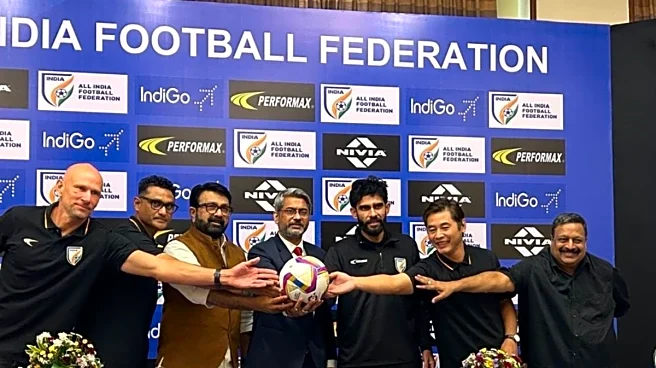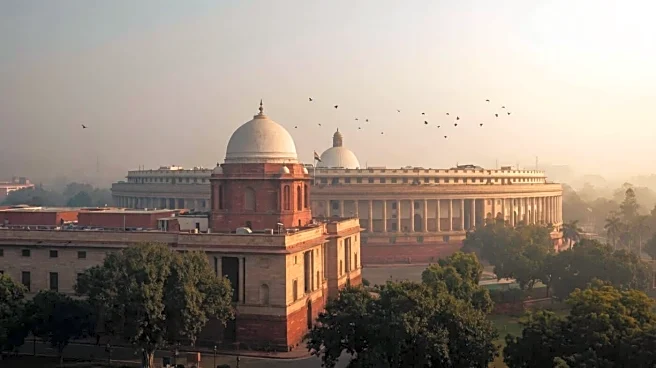The All India Football Federation (AIFF) on Sunday officially adopted its Supreme Court-approved constitution during a Special General Body Meeting (SGM), marking a key step toward aligning Indian football
governance with global standards.
However, two contentious clauses have been left pending clarification from the Supreme Court, following concerns raised by FIFA and domestic stakeholders.
Supreme Court’s Direction and the Adoption Timeline
On September 19, the Supreme Court had approved the draft constitution of the AIFF, originally prepared by former apex court judge L. Nageswara Rao, with certain modifications. The court directed the AIFF to adopt the revised document within four weeks.
However, two specific provisions — one requiring Supreme Court approval for any future constitutional amendments and another restricting dual office-holding between the AIFF and its state units — created complications for the federation’s leadership.
“The constitution was adopted without the two clauses, pending directions from the Supreme Court,” a senior AIFF official confirmed to PTI.
AIFF Seeks Clarification on Controversial Clauses
The federation approached the Supreme Court on Thursday, seeking clarification on Articles 23.3 and 25.3(c) of the draft constitution, after FIFA expressed objections to their inclusion.
Article 23.3 states that “any such amendment shall not be given effect to without the leave of the Hon’ble Supreme Court.”
Clause 25.3(c) stipulates that “if a person is elected as an Office-Bearer in the Executive Committee of the AIFF and also holds a position in a Member Association, he/she shall automatically be deemed to have vacated the state association post.”
The Supreme Court bench on Friday asked the AIFF to inform its SGM that the Apex Court had agreed to provide clarification. It also noted that it would consult Justice (Retd.) L. Nageswara Rao and request him to submit a report addressing the concerns.
Following the directive, the AIFF and other stakeholders held a virtual meeting with Justice Rao on Saturday. According to sources, the Supreme Court is expected to take up the matter on Monday or Tuesday, once the report is submitted.
“We can’t speculate on what the Supreme Court will decide. We have to wait and watch,” said an AIFF official.
Dual-Post Clause Could Affect Majority of Officials
If Article 25.3(c) were enforced, a majority of AIFF’s Executive Committee members would be required to relinquish their state-level posts.
Currently, the AIFF Executive Committee comprises 16 elected members and six co-opted former players with voting rights. Of the 16 elected officials, at least 12 also hold positions in state associations — as presidents, secretaries, or executive members.
The rule would force them to choose between continuing in their state associations or remaining part of the AIFF’s national executive body. Given that federation elections are less than a year away, several members are expected to prioritize their state roles.
Interestingly, this dual-post clause was not part of Justice Rao’s version of the constitution. It was originally proposed by the Committee of Administrators (CoA) led by former Chief Election Commissioner S.Y. Quraishi, which oversaw AIFF affairs following FIFA’s 2022 suspension.
However, during court hearings, certain stakeholders requested its reinstatement, prompting the Supreme Court to reintroduce it in the final draft.
Key Reforms in the Adopted Constitution
Despite the pending clauses, the adopted constitution introduces several transformative reforms aimed at improving transparency, governance, and alignment with global football standards.
- Term and Age Limits: A person can hold office for a maximum of 12 years in their lifetime, serving up to two consecutive four-year terms.
- Executive Committee Structure: The new body will include 14 members — one president, two vice presidents (one male, one female), one treasurer, and ten others, five of whom will be eminent players, including two women.
- No-Confidence Provision: The revised constitution allows for removal of office-bearers, including the president, through a no-confidence motion — a mechanism absent in the previous framework.
- League Ownership and Promotion-Relegation: The AIFF must now own and operate India’s top-tier football league, ending private control. The Football Sports Development Limited (FSDL) — a Reliance Industries subsidiary — currently operates the Indian Super League (ISL). Under the new structure, the AIFF will oversee the league directly, incorporating a promotion and relegation system in line with FIFA norms.
These reforms are expected to reshape how Indian football is governed, making it more democratic, player-inclusive, and compliant with global best practices.
FIFA Deadline Looms Large
The issue carries additional urgency as FIFA has set a deadline of October 30 for the AIFF to adopt its new constitution in full. Failure to comply could result in suspension or other sanctions, potentially impacting India’s participation in international competitions and access to development funding.




/images/ppid_59c68470-image-177105003415990657.webp)

/images/ppid_59c68470-image-177105003432353455.webp)

/images/ppid_a911dc6a-image-177104902795770968.webp)




/images/ppid_59c68470-image-177104753116157906.webp)

